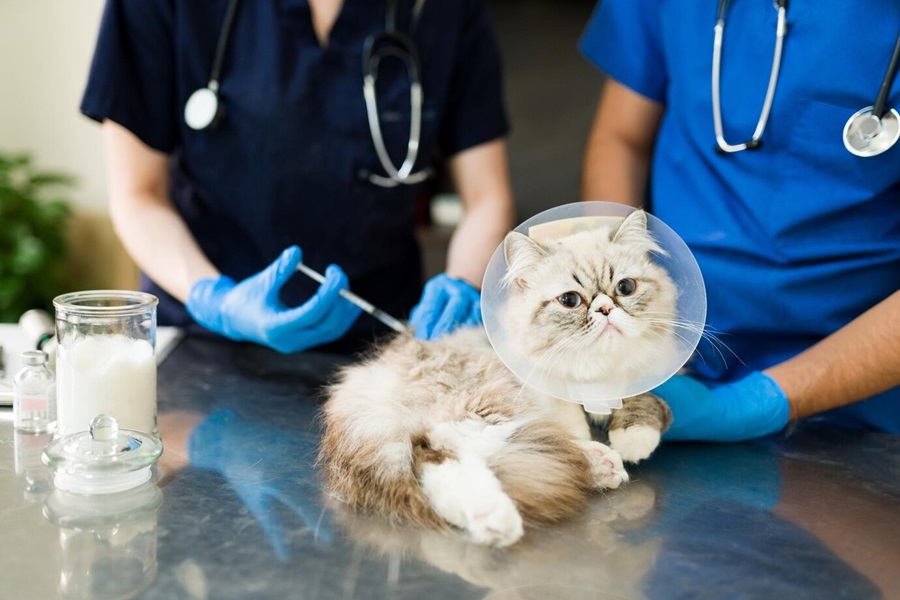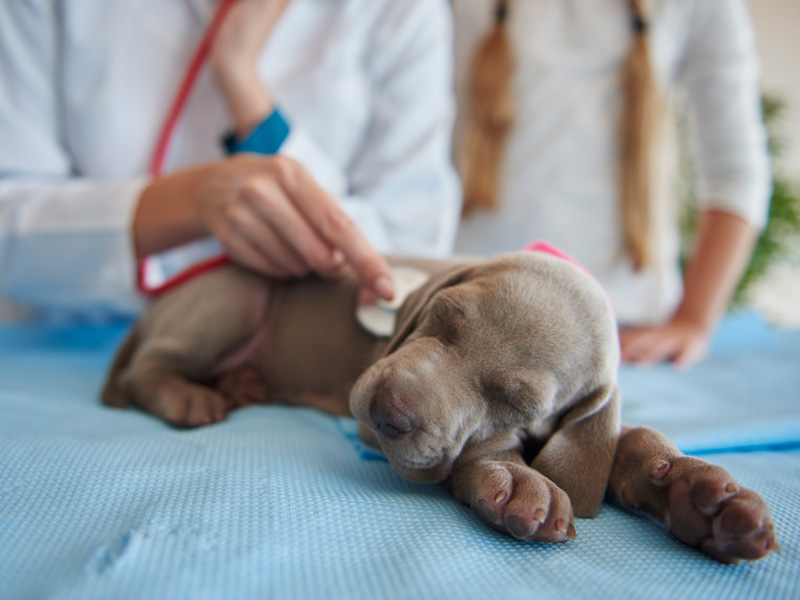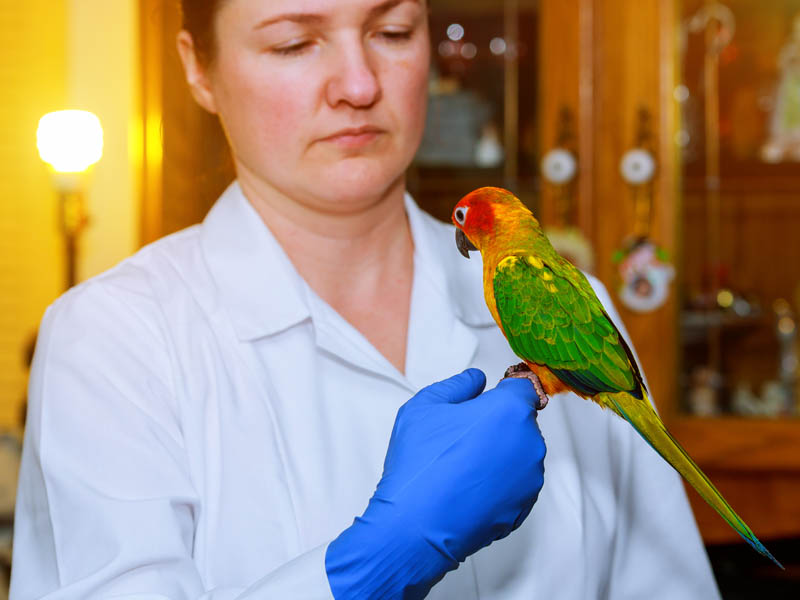Feline Friends & Vaccines: Protecting Your Cat from Disease

Feline Friends & Vaccines: Protecting Your Cat from Disease
A responsible cat owner will take every measure to ensure their feline friend stays healthy and thrive. Arguably, one of the most fundamental practices involved with raising a domestic cat is administering cat vaccinations. These have proven effective in providing protection for quite a few life-threatening illnesses with the intent of ensuring not just your cat's health but that the people around you remain safe and healthy, as well.
Why Are Cat Vaccines Important?
Vaccinations cause the immune system to respond to a particular disease but do not give the illness. They have a weakened or killed form of the viruses or bacteria they are trying to prevent. The pathogens are introduced to the body in a controlled manner by being administered so that the immune system is prepared to fight infections when they arrive. Vaccination for cats is essential because they can prevent serious diseases that are contagious and, at times, even fatal.
- Cat Vaccines help in cat disease prevention and prevention of infectious diseases that contribute to the overall health of the cat. Vaccinating your cat will not only protect them but also prevent the transmission of diseases to other animals and, in some cases, even to humans.
- Core vaccines as recommended, are to be used on every cat regardless of their lifestyle for prevention of widespread and serious diseases. Non-core cat vaccines are a subset of options based on risk level, environment exposed to cats, and certain aspects of life for your kitty.
- Feline Panleukopenia (FPV) Also known as feline distemper, FPV is a very contagious and fatal disease caused by the virus that attacks the cat's immune system, the digestive tract and bone marrow. It is an infectious disease that affects cats, whether indoors or outdoors. Vaccination for all cats is essential due to the widespread nature of the disease.
- The third disease caused by FHV-1 is a disease known as feline herpesvirus Type-1 leading to feline viral rhinotracheitis, a very severe respiratory infection that causes sneezing and nasal discharge accompanied with eye infections, particularly in kittens and cats with lowered immune systems. The FHV-1 vaccine aims to avoid this illness and its proliferation.
- It may produce oral and pulmonary ulcers. This leads to more severe complications; the vaccination against FCV offers immunity against this highly contagious virus and dilutes the impact of the infection.
- Rabies – Rabies is almost inevitably a fatal viral disease which is spread through all mammals, especially cats, to human beings. It's mostly attained by bites and scratches from infected animals on healthy ones. Most of the countries enforce laws to force the vaccination against rabies to be administered for the domestic cat as it safeguards the further dissemination of the rabies to other human beings and other animals.
- Non-core vaccines should be administered according to the type of lifestyle and environment that your cat would have. These are mainly recommended to cats that go outdoors or in certain places where the diseases are more prevalent. Feline Leukaemia Virus (FeLV) FeLV is the most common viral disease, and it leads to immuno-suppression resulting in health problems such as anaemia and cancer. Kittens of cats living outdoors or exposed to the carrier FeLV - positive cats must be vaccinated.
- Chlamydia Psittaci- This is a bacterial infection causing conjunctivitis, otherwise known as eye inflammation. It leads to upper respiratory symptoms. Vaccination with chlamydia is often suggested for cats exposed at high rates, such as cats in shelters or multi-cat homes.
- Bordetella Bronchiseptica – This is a bacterium that causes respiratory disease and can be somewhat problematic in multiple cat situations, such as a shelter or cattery. Any cat exposed regularly to other animals should receive the Bordetella vaccine.
- Feline Immunodeficiency Virus (FIV) – FIV is a viral infection very similar to HIV in humans. The virus depresses the immune system of the cat and, therefore, leaves it susceptible to more opportunistic infections. Even though there are vaccines for FIV, these are not frequently used since the disease is not very prevalent, and neither of the existing vaccines is 100% effective.
When to Vaccinate Your Cat
- Generally very much depending on their age, lifestyle, and general health status; kitten vaccinations usually begin roughly around an age of about 6 to 8 weeks when routine boosters can be repeated over a period of approximately 3 to 4 weeks until nearly reaching around 16 weeks of age. While the rest of an adult cat would generally require another booster- ideally with an interval of 1 to 3 years depending on what type interests you, together with recommendations made by your vet that visits.
- It is imperative to note that kittens need multiple cat vaccines for immunity to be established. Single vaccinations confer temporary cat disease prevention immunity rather than permanent. Therefore, the correct schedule is what matters. During the introduction of an adult cat to a house, the vet will check if the cat's vaccination history can be updated; the vet starts or updates a vaccination schedule of that cat.
Side effects and safety of vaccines
As with all drugs, side effects can be expected from vaccination. They are generally short term and self-limiting within days. They include the following:
- Vaccination-induced somnolence- Cats typically become drowsier or more lethargic after vaccination.
- Low-grade fever- The body temperature might rise slightly.
- Swell or is sore at the injection site- This is usually minor and heals in a very short time.
- Loss of appetite- Some cats will turn their noses up on food for a short time after vaccination.
In rare cases, allergic reaction occurs in some cats, which mostly are detected and treated early by a veterinarian. Vaccination has proven benefits to be far more than the risks. The vaccines, therefore, are safe and effective protection for your cat against harmful diseases.
The Consequences of Not Vaccinating Your Cat
- Failure to vaccinate your feline friend leaves it vulnerable to severe diseases. Feline panleukopenia, herpesvirus, and rabies are some of the diseases that are fatal. In most cases, treatment is limited or ineffective once symptoms start showing. Vaccination of your cat reduces the chances of contracting such diseases and increases the possibility of living a long, healthy life.
- This is also because the unvaccinated cats turn out to be a source of disease to other animals. Such infections like rabies or calicivirus will be passed on to other pets and even humans from such cats. Hence, vaccination is not only aiding your cat gain health status but also helping the animal world at large.
Conclusion
- Vacccinations are an integral part of the cat health program because it prevents a cat from contracting many severe and possibly fatal diseases. It ensures that your cat receives both core and non-core vaccines, which protects the general health of the pet population while keeping your cat healthy and generally fit.
- Consult your veterinarian, and you design a specific, appropriate plan for vaccinations tailored to your feline friend. In fact, early vaccination and booster shots during regular check-ups at a veterinary office have proven to maintain health and happiness throughout a cat's life.
- Vaccination is a huge part of judicious decision-making that should be implemented by a serious pet owner on their own initiative.
2024-04-12 08:05:26 | Administrator
Recent Blogs

Identifying and Managing Infectious Diseases in Cats: Symptoms and Treatments
2025-03-28 07:33:14


Protecting Your Dog from Summer Heat Breed-Specific Tips
2025-03-18 12:47:51

Why Every Dog Needs the Canine Parvovirus Vaccine: A Comprehensive Guide
2025-02-26 11:33:37

Keeping Your Avian Companion Healthy: Identifying and Treating Bird Illnesses
2024-04-12 08:06:38

Spotting Babesia in Cats: Symptoms, Diagnosis, and Treatment
2024-04-12 08:06:32

Pawsitive Checkups: Why Routine Vet Visits are Essential for Your Dog
2024-04-12 08:06:23






